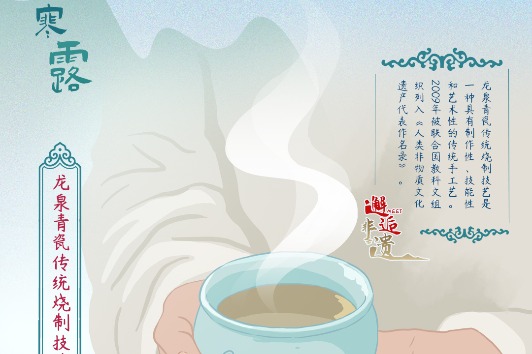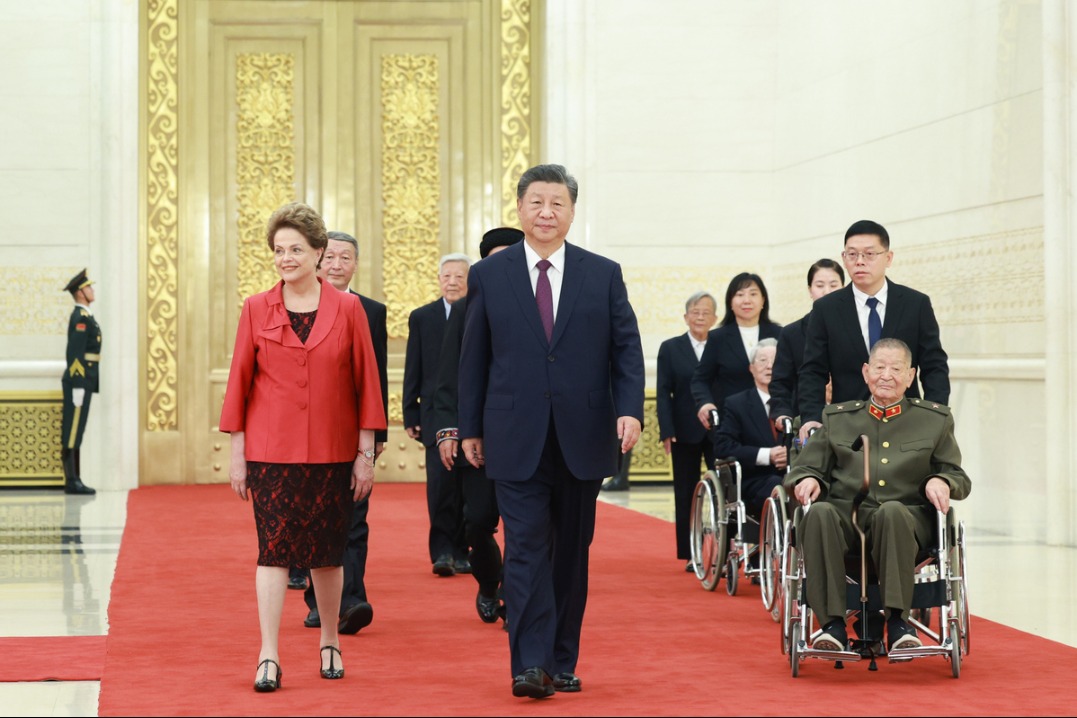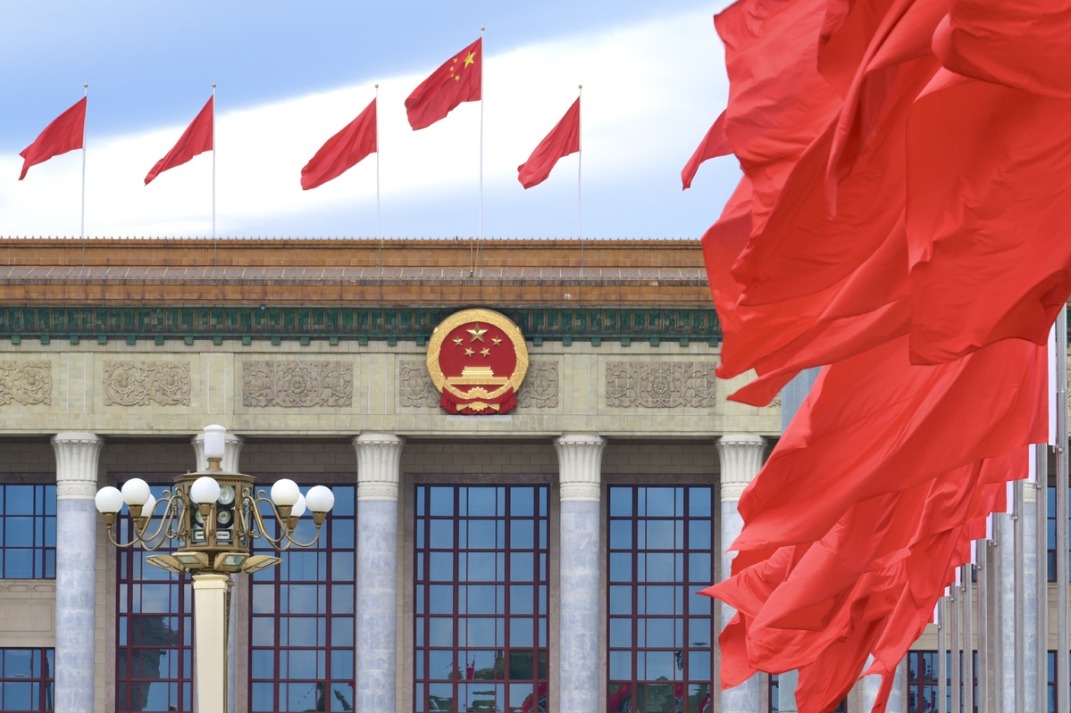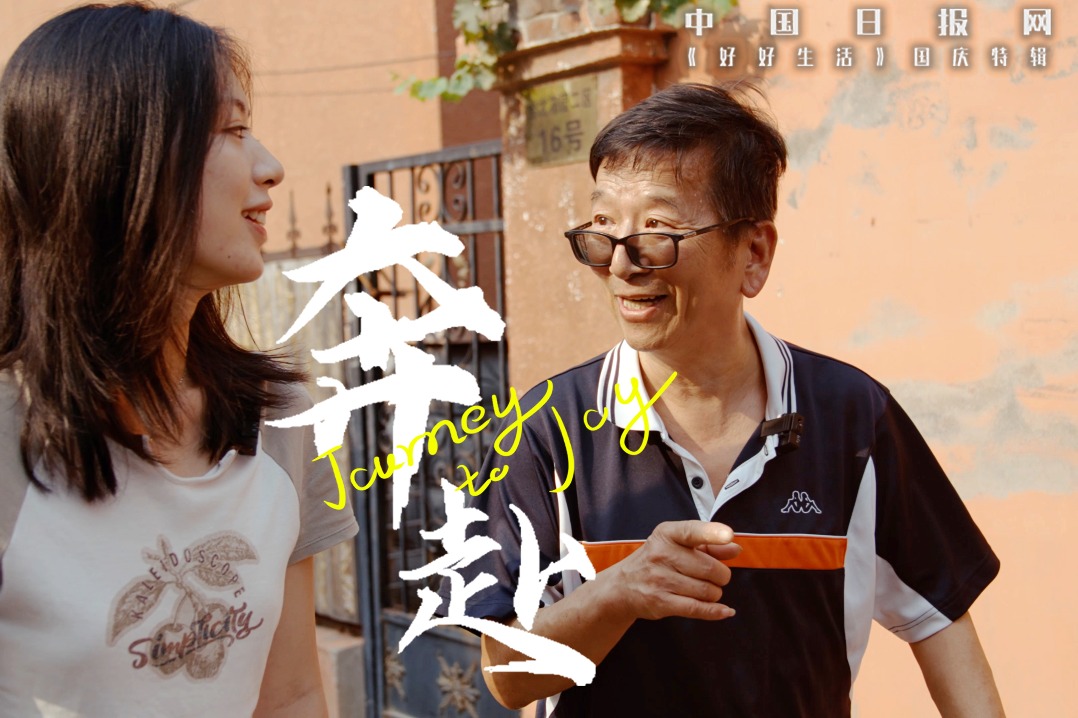A complex family legacy
By Fang Aiqing | China Daily | Updated: 2023-05-01 10:16
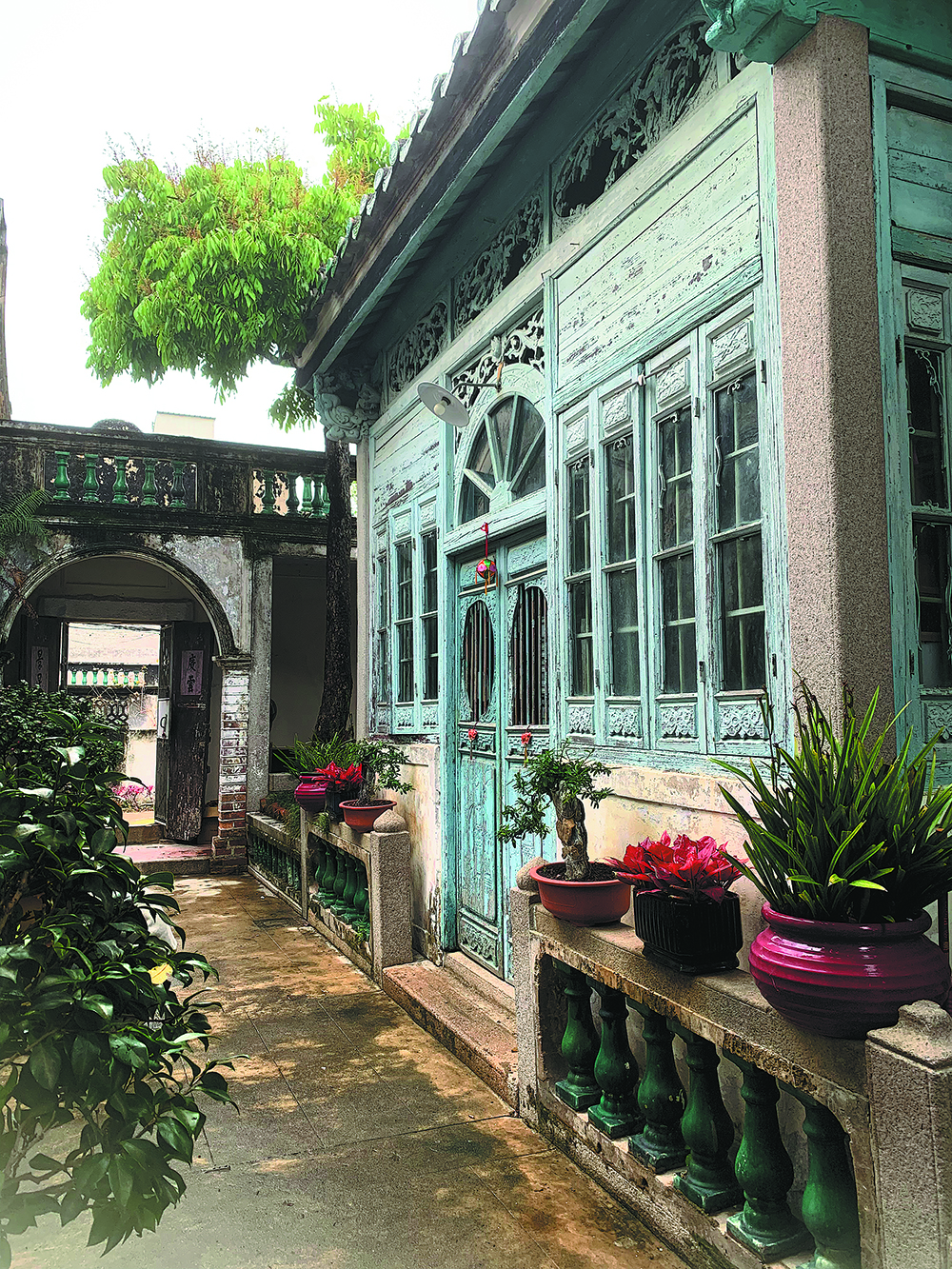
Both of the studies were where the owners hosted guests, with their decor and many calligraphy works by renowned artists of the time displaying the family's intellectual taste and values.
In the west study, the calligraphy works carry traditional aphorisms emphasizing modesty and inclusiveness. In the east building, however, the words meet the needs of a much more modern, competition-oriented society.
The houses are where angels and bats, traditionally bearing auspicious meanings, meet on the wall, while a Western pool and a Chinese well are also installed.
Ancestral history
In his heyday, Chen Xinmu used to be a board member of the Thai-Chinese Chamber of Commerce. His nephew Chen Yanchen also sailed south at the age of 15, working hard during the day and learning local languages at night, and was acclaimed for his ingenuity.
They promoted the use of domestic products in business, while back home, Chen Xinmu founded a vocational school especially for women to improve their lives, a pioneering deed in the early 20th century.
Located on the outskirts of the village, the family donated money to projects that guarded against natural disasters and contributed to safeguarding the security of the neighborhood. Historical archives show that they helped deter a gang of robbers in 1922.
During wartime, they lent the houses to a local middle school to use as temporary classrooms and dormitories, and the Chinese army were quartered there during the War of Resistance Against Japanese Aggression and again in the 1950s.







